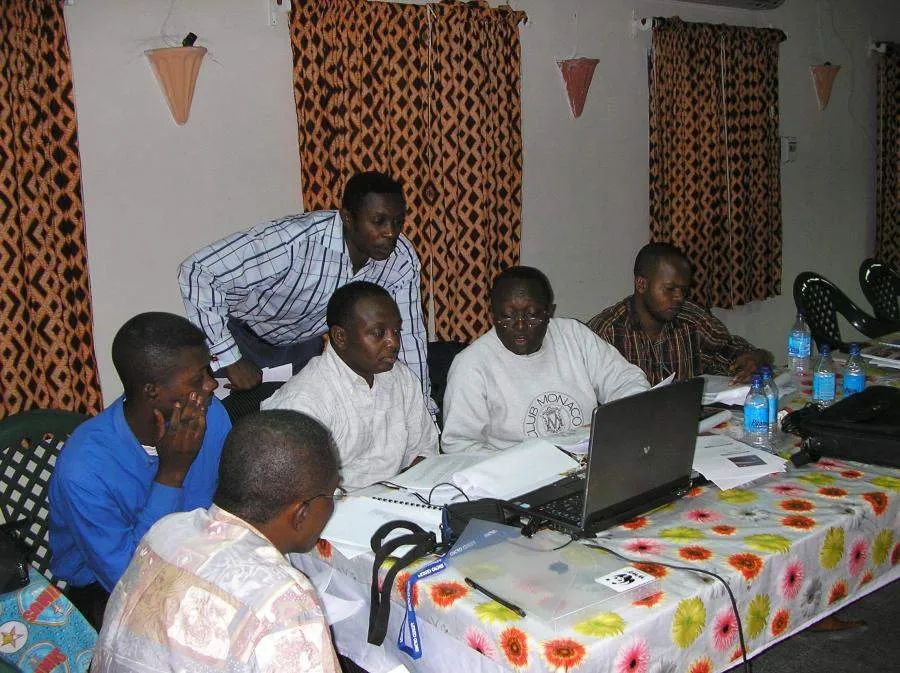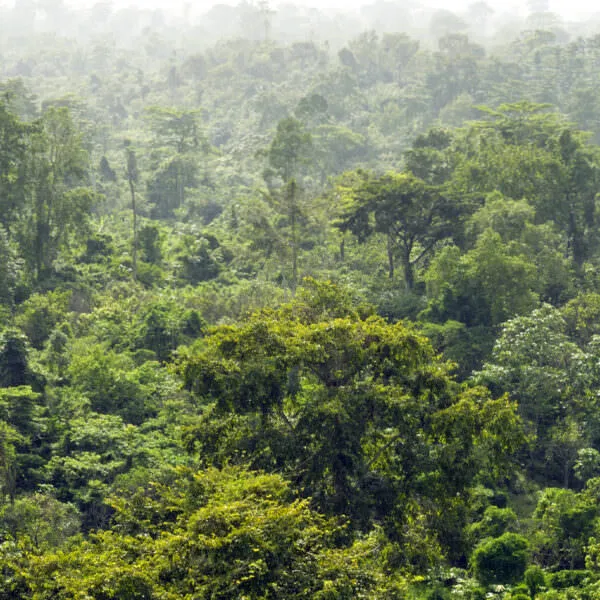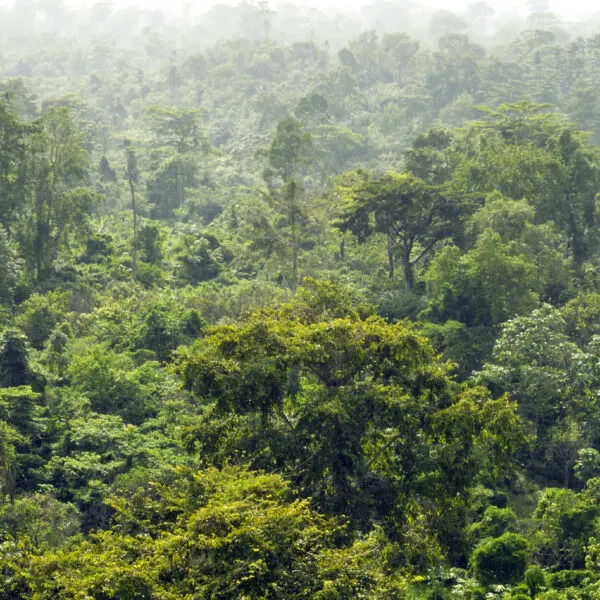Central Africa contains the second largest expanse of contiguous moist tropical forest of the world. It represents 70 percent of the African continent’s forest cover and constitutes a large portion of Africa’s biodiversity.
In the Congo Basin, forests are home to roughly 30 million people and support livelihoods for over 75 million people from more than 150 ethnic groups. In all of the six countries, forestry is a major economic sector, providing jobs and local subsistence from timber and non-timber forest products.
Congo Basin countries have expressed individual and collective commitment to addressing illegal logging and ensuring that the management of production forests is carried out in a sustainable manner. Initiatives at national level have had significant impacts, however these have largely focused on the ‘formal’ sector rather than the informal sector, and have not in practice addressed regional and cross-border issues.
Location
Cameroon, Central African Republic, Democratic Republic of Congo, Equatorial Guinea, Gabon, Republic of Congo
Project Objectives
This regional four-year project was concluded in February 2016. Its goal was to promote a harmonized approach to the sustainable management of production forests in the Congo Basin by:
- Developing instruments that enable the countries to apply a harmonized regional approach to tackling illegal logging.
- Developing and promoting harmonized market and fiscal incentives that would make it attractive for forest users to manage production forests in a legal and sustainable manner.
- Supporting the development of governance conditions that permit equitable participation and benefit sharing among all forest stakeholders.
The project was designed to contribute to the implementation of the Convergence Plan of the Central African Forest Commission (COMIFAC).

Partner communities
The project helped develop the capacities and promote the participation of national governments and civil society organizations, and promoted the involvement of local actors in forest management and governance, including direct support to such actors at a pilot level.
Goals/Desired Impacts
At the regional level:
- Nine studies on REDD+, sustainable forest management, and the fight against illegal logging that contribute to the development of instruments for a harmonized regional approach in central Africa.
- Training of approximately 50 auditors from Cameroon, Gabon, Republic of Congo, and Democratic Republic of Congo (DRC) in sustainable forest management and chain of custody.
- Regional multi-stakeholder exchanges on community participation and benefits sharing.
And within the three pilot countries of the project:
- In the Republic of Congo, equipment and training of the woodworking sector for more value added in timber processing.
- In Equatorial Guinea, training of the forest administration on REDD+, FAO Forest Law Enforcement, Governance and Trade (FLEGT) , and forest monitoring processes.
- In the Central African Republic, technical support to the process of revision of the land tenure law and the contribution to the formulation of the country’s constitution.
Partner Organizations
- World Resource Institute (WRI)
- Amigos de la Naturaleza y del Desarrollo de Guinea Ecuatorial (ANDEGE), Equatorial Guinea
- Ministry of Forest Economy and Sustainable Development (MEFDD), Republic of Congo
- Collège d’Enseignement Technique Moyen 12 Aout 1965, Republic of Congo
- Organisation pour le Développement Environnemental (ODE), Central African Republic
Funder
Global Environment Facility (GEF)



